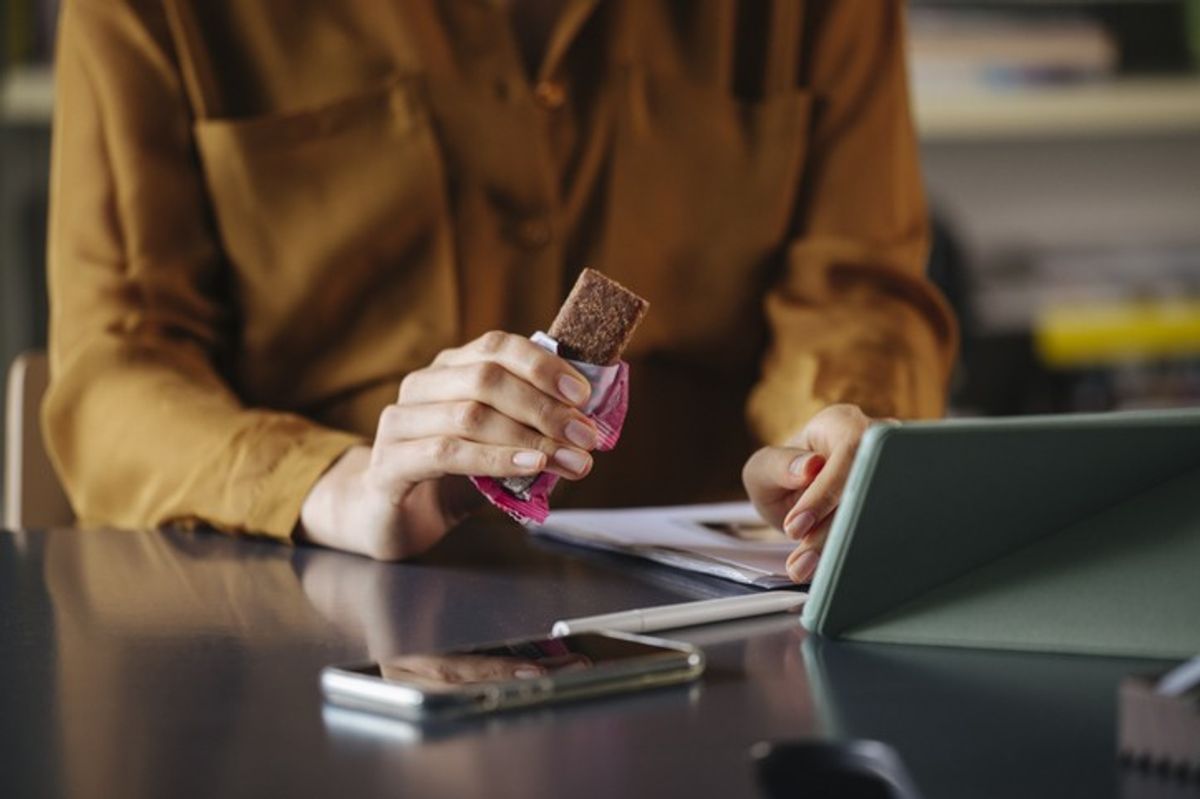Back-to-office culture is fuelling a growing “sweet treat economy”, with office workers now spending an estimated £57 million a week on chocolates, according to a recent report, thus driving footfall and sales across local shops, cafés, and high street stores.
New data from Virgin Media O2 Business’ Movers Index shows that despite 82 per cent of people adjusting their spending habits at the start of this year, largely due to rising costs, office perks and in-person work culture are contributing to an uptick in spending.
More than half (54 per cent) of workers are more likely to buy sweet treats and snacks when in the office compared to working from home, with 52 per cent treating themselves as a reward for going into the office and 24 per cent buying more in the past three months.
Many Brits treat themselves to little indulgences ‘most days’ when working in the office. The most common treats for office workers to consume most days they work in the office are coffee (49 per cent), soft drinks (47 per cent), sweets and chocolates (40 per cent) and breakfast items (40 per cent).
The top chocolate bars Brits purchase when in the office are Cadbury Dairy Milk (21 per cent), KitKat (15 per cent), Cadbury Twirl (10 per cent), Kinder Bueno (10 per cent), and Galaxy (9 per cent).
For many workers, treating themselves during office hours is about more than just consumption; 38 per cent say it helps boost their energy, 37 per cent use it to improve their mood, and 34 per cent see it as an opportunity to take a break from work. This trend is particularly strong among Gen Z professionals, with 86 per cent purchasing small treats at least once a week.
Recognising the importance of treats in the office to workers, a third (33 per cent) of businesses have increased office perks and amenities. Food-based benefits include free lunches on certain days (23 per cent), free drinks (22 per cent), free snacks (17 per cent) and even free pizza (11 per cent).
A sweet reward
As discretionary spending shifts towards the treat culture, weekend indulgences have also evolved, as 38 per cent cut back on non-essential purchases.
Eating a takeaway at home is the most popular way to celebrate a weekend evening for 36 per cent of Brits, over and above visiting a pub or bar (17 per cent) and heading out for a Sunday roast (17 per cent). Eating a dessert or sweet treat at home is favoured by 34 per cent.
Almost half of Brits (45 per cent) expect their spending to decrease over the next three months, particularly Gen Z (61 per cent). Despite this, workplace culture is playing a key role in sustaining the ‘sweet treat economy’ and continues to bring people to the shops.
Jessica O’Connor, Product Director at Virgin Media O2 Business, commented, “The way people work has changed, and so have their spending habits.
"Small treats are becoming an essential part of office culture, helping employees take a quick break and to return feeling energised. This trend isn’t just good for morale, it’s making a real impact on the wider economy, driving spending in local shops, cafés, and physical retail stores.
“With businesses creating more inviting work environments and employees spending more time in the office, the workplace is a vital hub for economic activity—one chocolate bar at a time.”


